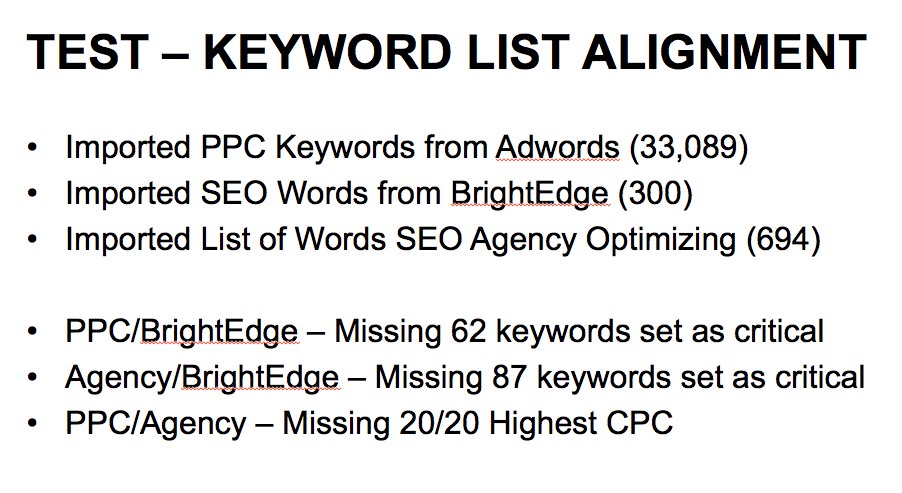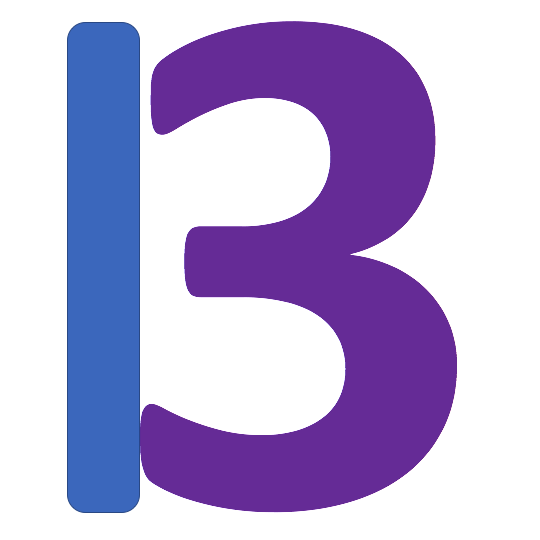Ensure Critical Keyword Coverage
I did a quick keyword opportunity analysis for a mid-sized B2B company that wanted to find ways to get more out of its search programs. I am still surprised that after numerous presentations and articles, I continue to find this dysfunction.
The following is the data breakdown of a similar program. The goal was to identify misalignment in keyword lists and ensure they had full representation on the critical keyword sets.

Activity
We imported all of the words from the various lists into DataPrizm, tagging them with the associated list. We then searched with the criteria to include each of the lists, and the following were the outcomes.? But first, a few assumptions from the client
- Assumes all words in their Critical 300 list would be included in both the organic list and the paid search campaign.
- These critical words loaded in BrightEdge were being measured and optimized by their SEO agency.
- There was collaboration between the PPC agency and the SEO Agency for co-optimization and trying to optimize for high-cost keywords.
The Import Results
We imported PPC keywords from AdWords – they had a total of 33,089 words active in AdWords paid search.
Imported SEO words from Brightedge – this was the list of words they actively managed in BrightEdge – they only had 300, as that was all they paid for.
Imported List of Words SEO Agency optimizing – this was the list the SEO Agency had developed to try to make the site rank higher.
Merge & Compare
Remember, the client told me that the 300 words in Brightedge were their most important words that they needed to rank for. As the most important words, they “SHOULD” have been in all lists.
When I compared the 33,000 paid words to the 300 Brightedge words, 62 critical words were missing from the list, meaning that while they were critical, they were not live in Paid Search, and there was no reason why they were not.
When I compared the 694 words the SEO agency was working on to the 300 in Brightedge, 87 of the critical keywords were not on the SEO company list – it’s strange that the SEO agency was not working on 87 of the most essential words and words that they were supposedly monitoring in Brightedge.
I then compared the paid keyword with the highest cost per click, and all 20 of those words, the most expensive keywords, were not on the SEO Agencies’ list of words to optimize. So if they are the most expensive, you would assume that they would be in the SEO program to help offset the paid cost.
In the end, the client was not happy with the outcome as they “assumed” and were repeatedly told by their agency that there was alignment. If you are not sure of your alignment, contact us to have a review of your program alignment.
